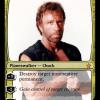Is there an expected length in levels to a platform game? Like a certain length needed to engage the player?
I'm making a game about as fast-paced as Sonic and since I'm designing the art assets, and the resolution isn't very small, I find it hard to supply track. So my levels end up lasting about 30 seconds.
Levels in a Sonic game are about 2-3 minutes long, by the way. And contain multiple paths, which my game doesn't.
While we are on this subject, a problem of mine is just, I can't make the games I develop long. I'm not sure it's laziness so much as design issues. For example, an explorational RPG I made with a 1 hour length could have lasted 15 hours had I implemented grinding. But I also dislike repetition - more so in the games I make, than as a player.










